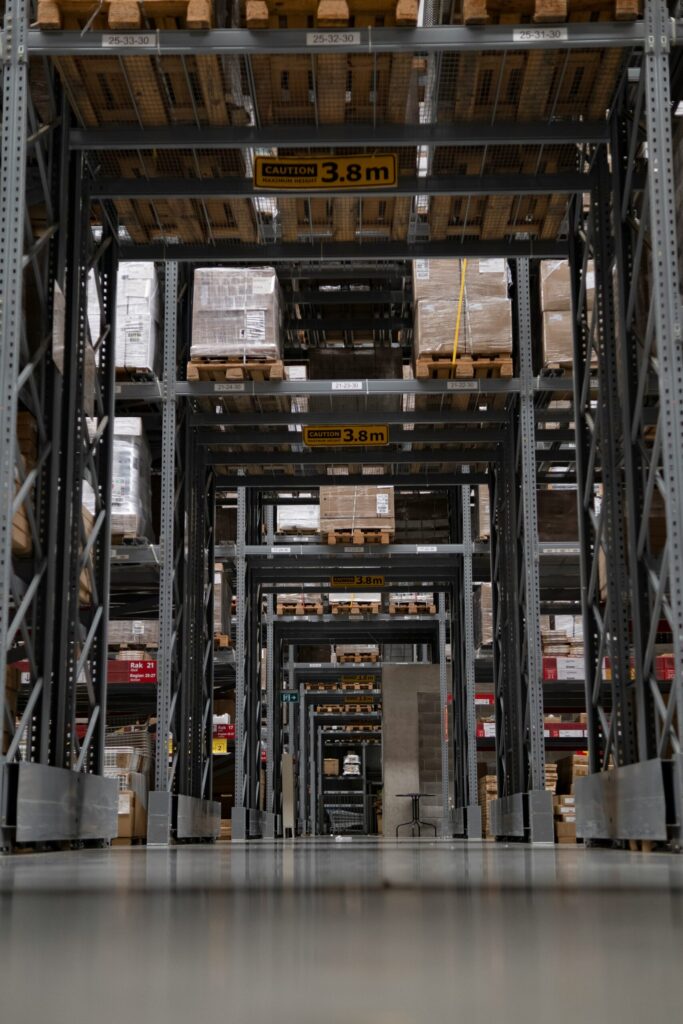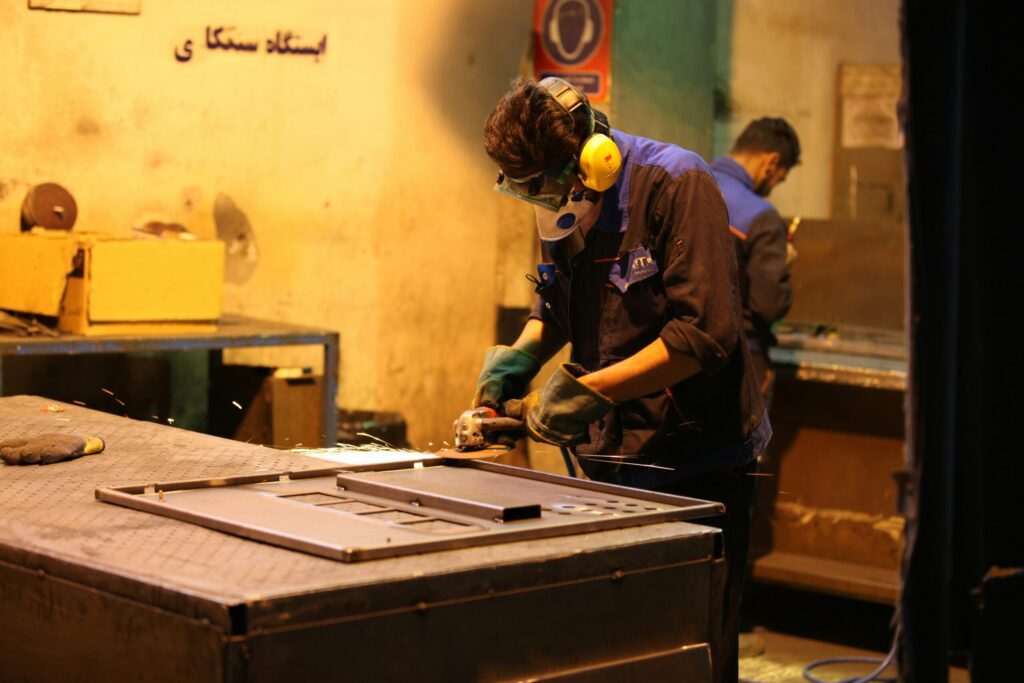Welding jobs are in-demand careers. If you’re a skilled welder from outside the UK, you’ve probably heard that there’s demand for welders there and that it’s possible to get visa sponsorship. That’s true—sort of. But like most immigration opportunities, the reality is more complicated than the headlines suggest.
Yes, welding jobs are on the UK’s Temporary Shortage Occupation List, which theoretically makes it easier for employers to sponsor foreign workers. Yes, major companies like Babcock International have recruited hundreds of welders from abroad because they can’t find enough qualified locals. And yes, you don’t need a university degree to qualify—your skills and experience matter more than formal education.
But here’s what often gets glossed over: not all welding roles qualify for sponsorship. The salary thresholds are high—we’re talking £41,700 per year minimum as of 2025 for most positions. Finding an employer willing to navigate the sponsorship process is challenging, even when there’s supposedly a shortage. The visa application itself is expensive and bureaucratic. And living costs in the UK will eat into your wages faster than you might expect.
Read Also: Seasonal Jobs in the UK for Foreigners (2025): Visas, Pay, and Where to Find Work
Why the UK Needs Welders (And Why That Hasn’t Solved the Problem)
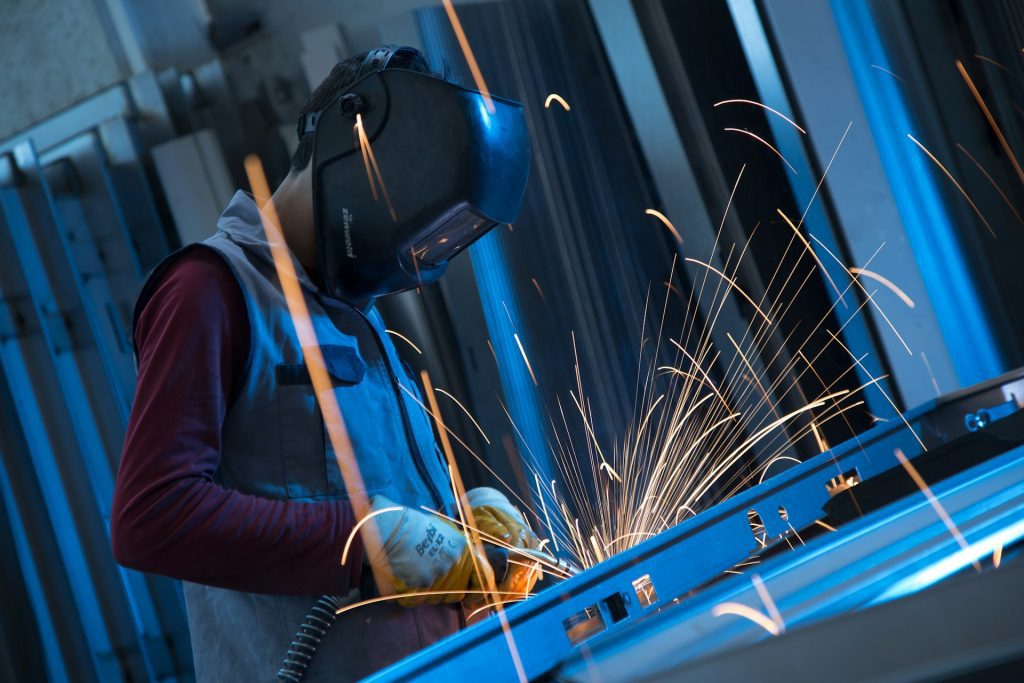 The UK has a genuine shortage of welders, particularly specialised welders with specific skills and experience. This didn’t happen overnight.
The UK has a genuine shortage of welders, particularly specialised welders with specific skills and experience. This didn’t happen overnight.
Brexit changed everything. Before the UK left the European Union, skilled workers from Poland, Romania, Bulgaria, and other EU countries could work in the UK freely without visa requirements. Many welders from Eastern Europe filled positions in British shipyards, construction sites, and fabrication shops. When Brexit ended freedom of movement, that pipeline dried up. Companies that relied on EU workers suddenly faced shortages.
The local pipeline isn’t producing enough welders. Vocational training in welding has declined in the UK over recent decades. Fewer young people are entering the trades. The welders who remain are ageing, and retirement is shrinking the available workforce faster than new welders are being trained.
Not just any welders—specialised welders. The shortage is particularly acute for high-integrity pipe welders—people who can weld pipes for critical applications like shipbuilding, offshore oil and gas platforms, nuclear facilities, and aerospace. This work requires advanced skills, specific certifications, and often years of experience. You can’t just train someone off the street to do this work in a few months.
Babcock International, a major defence and engineering contractor, made headlines when it recruited roughly 300 welders from abroad because it couldn’t find enough qualified Scots to fill positions at its shipyards. That’s not an isolated case—it’s indicative of broader industry struggles.
But here’s the paradox: despite this supposed shortage, many foreign welders struggle to find UK employers willing to sponsor them. Why? Sponsorship is expensive, bureaucratic, and uncertain for employers. Many smaller companies simply can’t or won’t deal with it. And the visa rules keep changing, creating hesitation even among companies that might otherwise sponsor workers.
Read Also: Jobs Available in the UK for Foreigners (2025/2026): Visas, Sectors, Salaries, and How to Apply
Welding Jobs: Understanding the Skilled Worker Visa for Welders
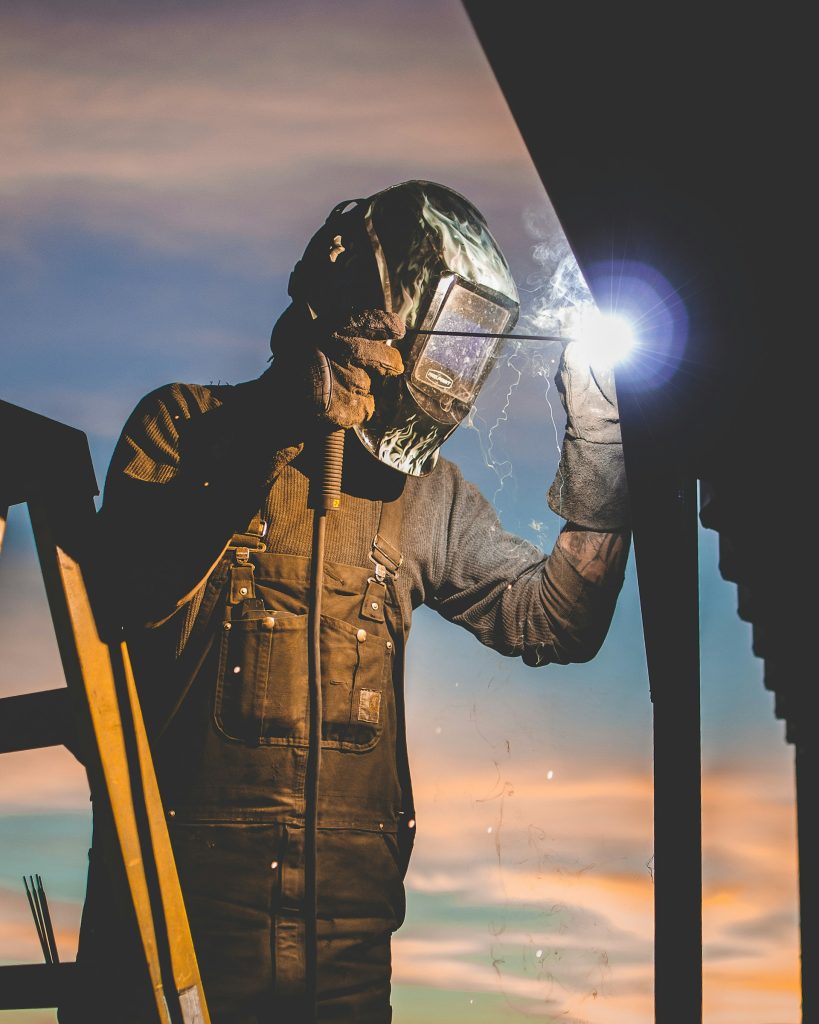 If you want to work as a welder in the UK as a foreigner, you’ll almost certainly need a Skilled Worker visa. Let’s break down what that actually involves.
If you want to work as a welder in the UK as a foreigner, you’ll almost certainly need a Skilled Worker visa. Let’s break down what that actually involves.
You need an employer sponsor first.
You can’t apply for the Skilled Worker visa on your own. A UK employer must be licensed as a sponsor, agree to hire you, and issue you a Certificate of Sponsorship (CoS). This certificate is essentially a reference number tied to a specific job offer at a specific salary for a specific duration.
Finding that sponsoring employer is often the hardest part. We’ll talk more about that later.
Your job must meet skill and salary thresholds.
Not all welding jobs qualify. According to the UK government’s skilled worker salary list, welding trades—specifically “high integrity pipe welders with at least 3 years’ relevant experience”—require a minimum salary of £34,900 per year under previous rules. But as of 2025, reports suggest the threshold has increased to £41,700 per year for many positions.
Let’s be clear about what £41,700 means. That’s roughly £3,475 per month gross, or about £2,600-£2,800 per month take-home after taxes and National Insurance. In London or other expensive cities, that’s livable but not comfortable. In cheaper areas, it’s more manageable. But employers need to be willing and able to pay that salary, which smaller fabrication shops often can’t or won’t.
You need to prove your skills and experience.
The “high integrity pipe welder with at least 3 years’ relevant experience” requirement isn’t just about having welded pipes for three years. It’s about demonstrating competency in specialised welding techniques—typically TIG (tungsten inert gas) or advanced MIG (metal inert gas) welding for critical applications.
You’ll need documentation: reference letters from previous employers, photos or videos of your work, certifications showing you’ve completed specific welding training, and potentially evidence of projects you’ve worked on. UK employers want to see that you can handle the level of precision and quality their projects demand.
English proficiency is required.
You need to demonstrate English language ability at the B1 level on the Common European Framework of Reference (CEFR). For many applicants, this means taking an approved English test like IELTS. You need to be able to read technical drawings, follow safety instructions, communicate with supervisors and colleagues, and understand workplace protocols—all in English.
If English isn’t your first language and you’re not confident in your ability, this requirement can be a barrier. But it’s also non-negotiable. Welding involves safety-critical work where miscommunication can cause injuries or deaths.
The visa costs money.
You’re paying visa application fees (currently around £719 for up to 3 years), the Immigration Health Surcharge (£1,035 per year to access the National Health Service), and potentially English test fees, document translation costs, and travel to biometric appointments. Expect to spend £3,000-£5,000+ just on the visa process before you even arrive in the UK.
Some employers reimburse these costs. Many don’t. Clarify this during job negotiations.
Sponsorship costs hit employers, too.
Employers pay a sponsor license fee, a Certificate of Sponsorship fee for each worker (£239 per CoS), and an Immigration Skills Charge (£1,000 per year for each sponsored worker). For a small fabrication shop considering whether to sponsor a foreign welder versus just hiring locally, these costs create real hesitation.
This is why finding sponsoring employers is difficult even during a “shortage.” The administrative burden and financial costs make many companies reluctant, despite needing workers.
Read Also: PhD Scholarships in the UK: Funding Options & How to Win Them (2025)
What “High Integrity Pipe Welding” Actually Means
Let’s clarify this term because it’s central to visa eligibility, and it’s not just marketing jargon.
High-integrity welding refers to welding work where failure could result in catastrophic consequences—death, environmental disaster, or massive financial loss. We’re talking about:
Shipbuilding and submarine construction where pipe welds that must withstand extreme pressures, corrosion, and stress. A failed weld on a naval vessel could sink the ship or kill crew members.
Offshore oil and gas platforms where pipe systems transport flammable materials under high pressure. Weld failure could cause explosions, fires, or environmental disasters.
Nuclear facilities where pipe systems must contain radioactive materials safely. The standards are exceptionally rigorous.
Aerospace applications where weight and strength ratios are critical and failure could cause aircraft disasters.
Power generation and chemical plants where pipe systems handle dangerous substances at extreme temperatures and pressures.
This isn’t general fabrication or construction welding. You’re working to extremely tight tolerances, following strict procedures, and often requiring X-ray or ultrasonic testing to verify your welds meet standards.
The certifications matter. You might have welding qualifications from your home country, but UK employers often want to see certifications that align with British or international standards—things like coded welding certifications, ASME (American Society of Mechanical Engineers) qualifications, or EN (European Norm) standards compliance.
If you’ve been welding structural steel for buildings or doing general fabrication work, you might not qualify as a “high integrity pipe welder” even if you’ve been welding for years. The distinction matters because it affects visa eligibility.
Read Also: Sponsorship Jobs Opportunities for the UK £25,000 Visa Category
The Reality of Finding Sponsoring Employers
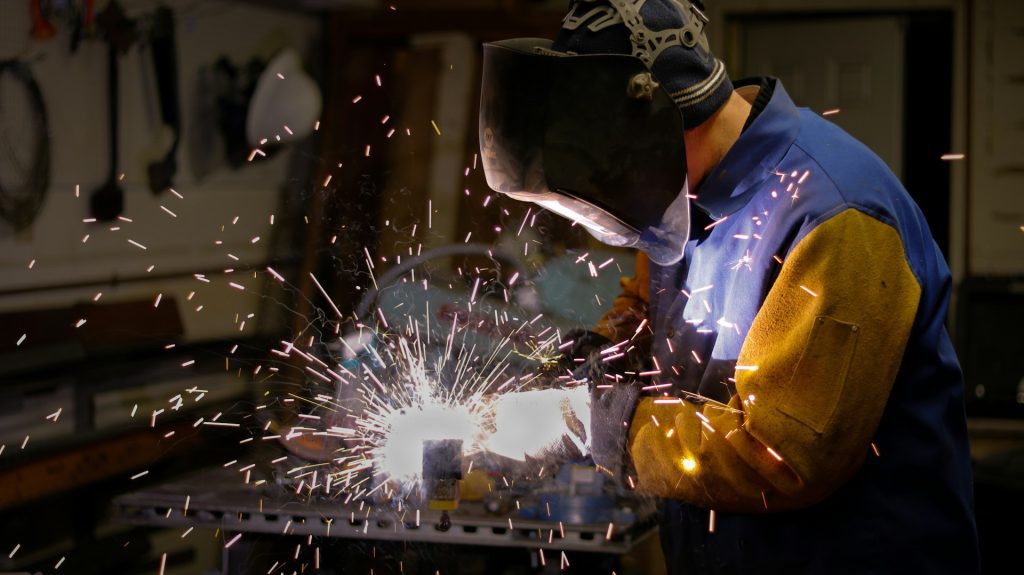 This is where theory meets practice, and practice is often frustrating.
This is where theory meets practice, and practice is often frustrating.
Many employers advertise welding jobs, but won’t sponsor.
Job boards are full of UK welding positions. Most don’t mention visa sponsorship because they’re targeting local workers or EU nationals who settled in the UK before Brexit. When you apply as a foreign worker needing sponsorship, you’re often told the role doesn’t offer it.
Sponsorship is concentrated among larger employers.
Big companies—defence contractors, shipbuilders, major engineering firms—are more likely to have sponsor licenses and experience with the visa process. Babcock International, BAE Systems, Rolls-Royce, and similar corporations sponsor foreign workers because they have HR departments that handle immigration and budgets that absorb sponsorship costs.
Small and medium fabrication shops—which employ the majority of UK welders—often don’t sponsor because they lack the infrastructure, budget, or willingness to deal with immigration bureaucracy.
You need to target companies that already sponsor.
The UK government publishes a register of licensed sponsors. Focus your job search on companies with active sponsor licenses. This dramatically narrows your target list but increases your chances of finding employers who’ll actually consider sponsoring you.
Recruitment agencies sometimes help.
Some agencies specialise in placing foreign skilled workers with UK employers, handling much of the visa paperwork. Connexus International, for example, explicitly advertises welding roles with Skilled Worker visa sponsorship. Working with such agencies can streamline the process, though they’ll take a cut or charge fees.
Networking matters more than you’d think.
Cold applications rarely result in sponsorship. If you can connect with UK employers through industry contacts, online welding communities, LinkedIn networking, or trade associations, you’re more likely to get genuine consideration. Employers are more willing to sponsor someone they’ve interacted with and trust than a random CV from abroad.
Be prepared for a long job search.
Finding a sponsoring employer can take months. You might apply to dozens of positions, get rejections, hear nothing back, or encounter employers interested but unwilling to sponsor. This requires patience and persistence that many people underestimate.
Read Also: 11 Immigrant-Friendly Construction Jobs in the UK with Visa Sponsorship (2025)
The Money Question in Welding Jobs—Can You Actually Save?
Let’s talk realistically about finances because this determines whether UK welding jobs are worth it.
You’re earning £41,700 minimum. After taxes and National Insurance, that’s roughly £2,700 per month take-home. Sounds decent, right? Let’s see where it goes.
Rent varies wildly by location. In London or southeast England, a one-bedroom flat costs £1,200-£1,800+ per month. In cheaper northern cities like Newcastle or Glasgow, maybe £600-£900. Room in a shared house cuts costs—£400-£700 per month, depending on location.
Let’s assume you’re renting a room in a shared house for £600 per month because you’re trying to save money.
Food costs at least £250-£350 per month if you’re cooking most meals. Eating out regularly will double or triple this.
Transportation depends on location. If you’re near work and can walk or bike, minimal cost. Also, if you need public transport, budget £80-£150 per month. If you need a car (common in smaller towns), add insurance, fuel, maintenance—easily £300-£500+ per month.
Utilities, phone, and internet add another £100-£150 per month.
Council tax (local property tax) might be included in your rent or might not—budget another £80-£120 per month if you’re responsible for it.
Clothes, personal items, entertainment, emergencies—budget at least £200-£300 per month.
Monthly expenses: £1,400-£2,000+ depending on lifestyle and location.
Take-home: £2,700. After expenses: £700-£1,300 remaining.
You can save money, but it’s not going to be massive amounts unless you live frugally. And this assumes you’re single with no dependents. If you’re supporting family back home, sending remittances, or paying for dependents’ visas to join you (which costs significantly more), the math gets much tighter.
Compare this to what you could earn doing similar work in other countries—Australia, Canada, the Middle East—and the UK might not be the most lucrative option.
Read Also: Data Entry Jobs in the UK With Visa Sponsorship- 2025
What the Visa Doesn’t Guarantee
Let’s be clear about limitations.
Skilled Worker visa is temporary. You’re allowed to work in the UK for the duration specified on your visa (typically up to 5 years initially). This doesn’t automatically lead to permanent residence (called Indefinite Leave to Remain in the UK).
To qualify for permanent residence, you need to live in the UK continuously for 5 years on a qualifying visa, meet salary thresholds throughout, pass English and “Life in the UK” tests, and not violate any visa conditions. It’s possible, but it’s not guaranteed or automatic.
You’re tied to your sponsoring employer. If you lose your job or want to switch employers, you need the new employer to also be a licensed sponsor and issue you a new Certificate of Sponsorship. You can’t just quit and find any job like a UK citizen can. This creates vulnerability—if your employer is abusive, pays late, or provides poor working conditions, leaving isn’t simple.
Family sponsorship is expensive. If you want your spouse and children to join you, they need dependent visas. Each dependent pays visa fees and the Immigration Health Surcharge. For a family of four, you’re looking at £15,000-£20,000+ in visa costs alone. Many welders come to the UK alone, working and sending money home, because bringing family is prohibitively expensive.
The rules keep changing. UK immigration policy shifts frequently. Salary thresholds increase. Lists of shortage occupations get updated. What’s true when you apply might change by the time you’re eligible for renewal or permanent residence. This creates uncertainty that’s hard to plan around.
Read Also: Do UK Scholarships Cover Full Tuition?
Practical Steps to Actually Make This Happen in Welding Jobs
If you’re still interested after understanding the challenges in welding jobs, here’s how to pursue this realistically.
Build a strong portfolio.
Document your welding experience thoroughly. Get reference letters from previous employers on company letterhead explaining your roles, responsibilities, and skills. Take photos or videos of your work, particularly complex pipe welding jobs. Gather any welding certifications or training certificates you have.
Create a professional CV that emphasises high-integrity pipe welding experience if you have it. Be specific about techniques you’re proficient in (TIG, MIG, flux-core, etc.), materials you’ve worked with (stainless steel, aluminium, exotic alloys), and standards you’ve welded to (ASME, AWS, EN codes).
Get recognised qualifications.
If possible, obtain internationally recognised welding certifications before applying. AWS (American Welding Society) certifications or certifications aligned with British or European standards make you more attractive to UK employers. Some countries have reciprocal recognition agreements that make your home country qualifications easier to validate.
Research sponsoring employers systematically.
Use the UK government’s register of licensed sponsors to identify companies in welding-related industries—shipbuilding, aerospace, defence, oil and gas, and heavy engineering. Target your applications to companies already experienced with sponsorship.
Prepare for English testing.
If English isn’t your first language, start improving now. Take IELTS or another approved test when you’re confident you’ll score well. You only get one chance per test sitting, and retakes cost money and time.
Apply strategically, not desperately.
Sending hundreds of generic applications rarely works. Research each company, tailor your application to their specific needs, and explain clearly why you’re worth sponsoring. Some employers respond better to direct contact—phone calls or emails explaining your situation before formally applying.
Consider recruitment agencies.
Agencies specialising in skilled worker placement for UK employers can help, especially those with experience in trades and visa sponsorship. They know which employers are actively sponsoring and can guide you through the process.
Budget realistically for the entire process.
Between visa fees, English tests, document translations, travel to biometric appointments, and potentially months of waiting without income, expect to spend $5,000-$7,000 USD (or equivalent) before you even start working. Make sure you have these funds available.
Have a backup plan.
Don’t put all your eggs in the UK basket. Explore welding opportunities in other countries simultaneously—Canada, Australia, New Zealand, Germany, and Middle Eastern countries all hire foreign welders under various schemes. The UK might work out, but it might not, and you don’t want to waste a year pursuing something that doesn’t materialise.
Read Also: How to Get Work Visa Sponsorship in the UK
The Brexit Impact Nobody Talks About Enough
Brexit created the opportunity but also the complications.
Before Brexit, skilled Polish, Romanian, or Bulgarian welders could start working in the UK on Monday after arriving on Sunday. No visa, no sponsorship, no bureaucracy—just show up and work. UK employers got used to this flexibility.
Post-Brexit, those same employers need to navigate visa sponsorship for EU workers just like they do for non-EU workers. Many smaller companies simply stopped hiring foreign workers rather than deal with the new system. The welders the UK needs are theoretically available globally, but the mechanism for hiring them is now so cumbersome that many employers opt to remain understaffed rather than sponsor.
This is why there’s simultaneously a “shortage” and difficulty in finding sponsoring employers. The demand exists, but the system for filling that demand is broken or at least severely inefficient.
For you as a foreign welder, this means opportunity exists, but accessing it requires navigating a system that wasn’t designed well and frustrates everyone involved—you, the employer, and the immigration officials processing applications.
Read Also: Factory Jobs In The UK
Is It Actually Worth It?
Let’s be brutally honest about whether pursuing UK welding work makes sense for you.
Welding jobs make sense if:
You’re a highly skilled pipe welder with 5+ years of solid experience in high-integrity work, and you have documentation proving it. You’re patient enough to spend 6-12 months job hunting and going through the visa process. You have £5,000+ saved to cover visa costs and initial living expenses. You’re willing to live frugally for a few years to save money. You’re okay with uncertainty around long-term immigration status. You genuinely want to experience living in the UK beyond just earning money.
Welding jobs may not make sense if:
Your welding experience is primarily general fabrication or construction work without specialised pipe welding credentials. You need immediate income and can’t afford months of job searching. You have limited savings and can’t cover visa costs. You’re expecting to get rich—welding pays decently, but it isn’t lucrative enough to save massive amounts while supporting a family. You’re primarily interested in this as a fast track to UK permanent residence (it’s not). You have better-paying opportunities in other countries with simpler immigration systems.
The UK offers a legitimate path for skilled welders, but it’s not easy, it’s not cheap, and it’s not guaranteed. For the right person with the right skills, experience, and financial cushion, it can work. For others, it’s an expensive lesson that immigration systems are designed to be difficult by nature.
Research thoroughly, prepare financially, manage your expectations, and pursue this only if it genuinely fits your skills, situation, and long-term goals. The opportunity is real, but so are the barriers. Make sure you understand both before investing time and money into making this happen.


